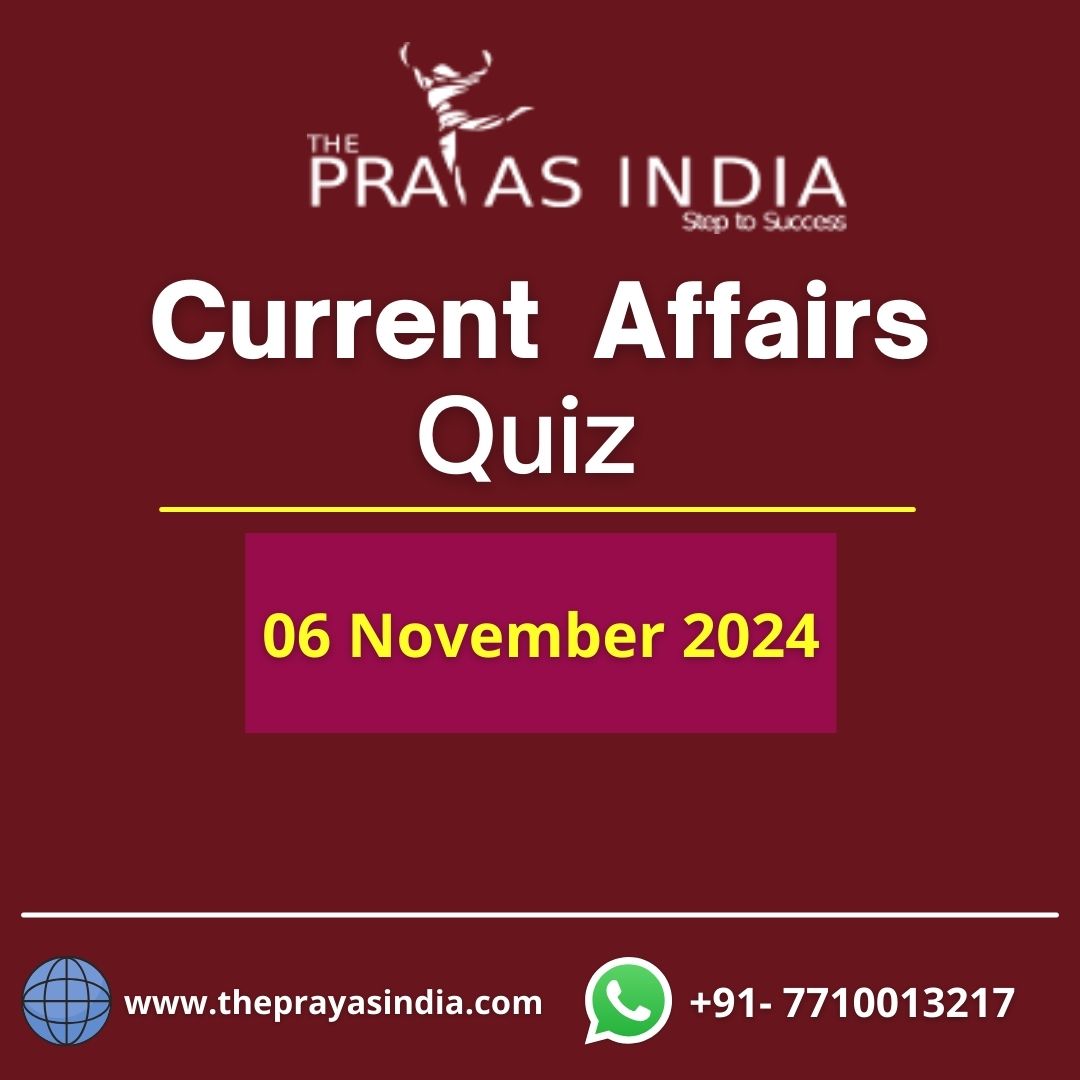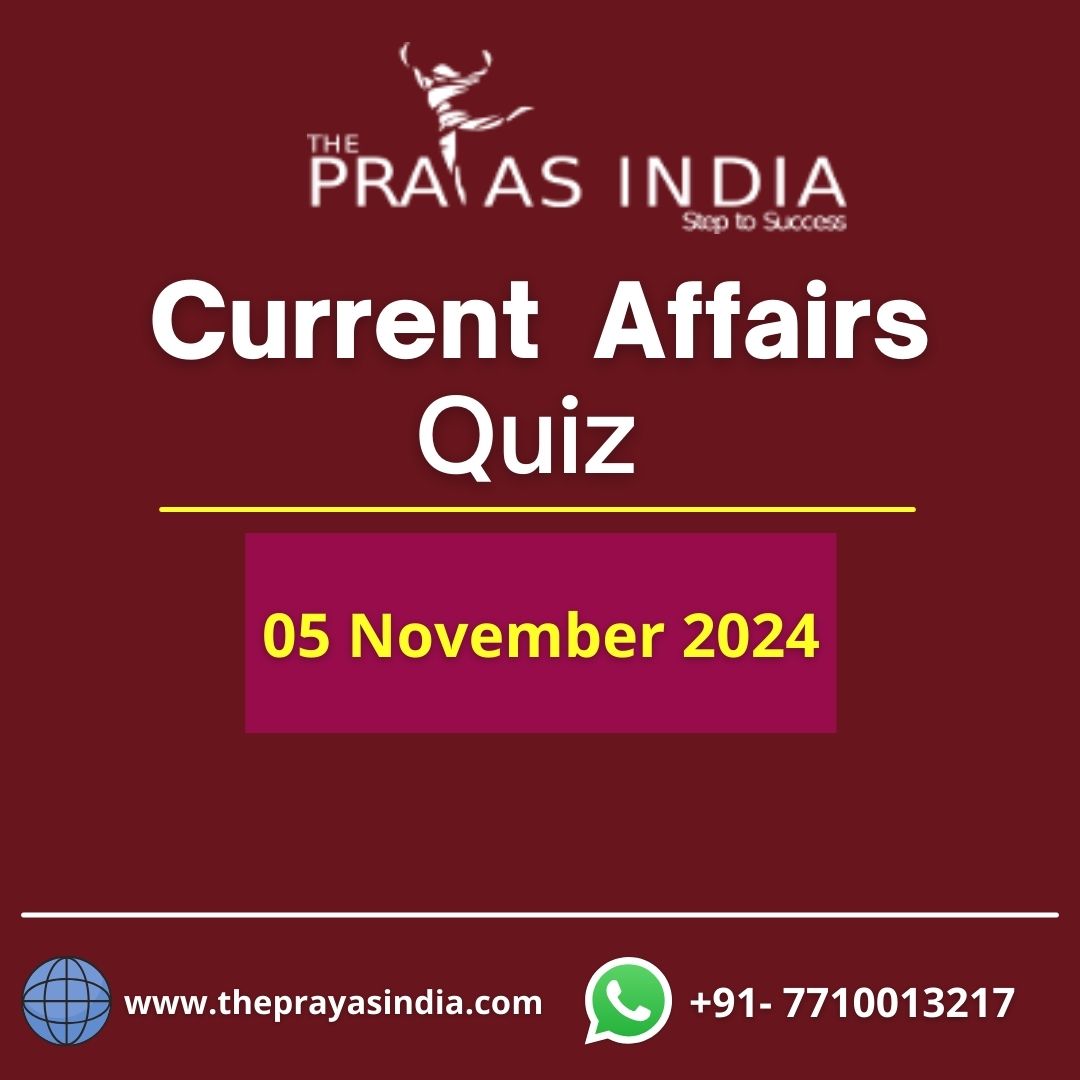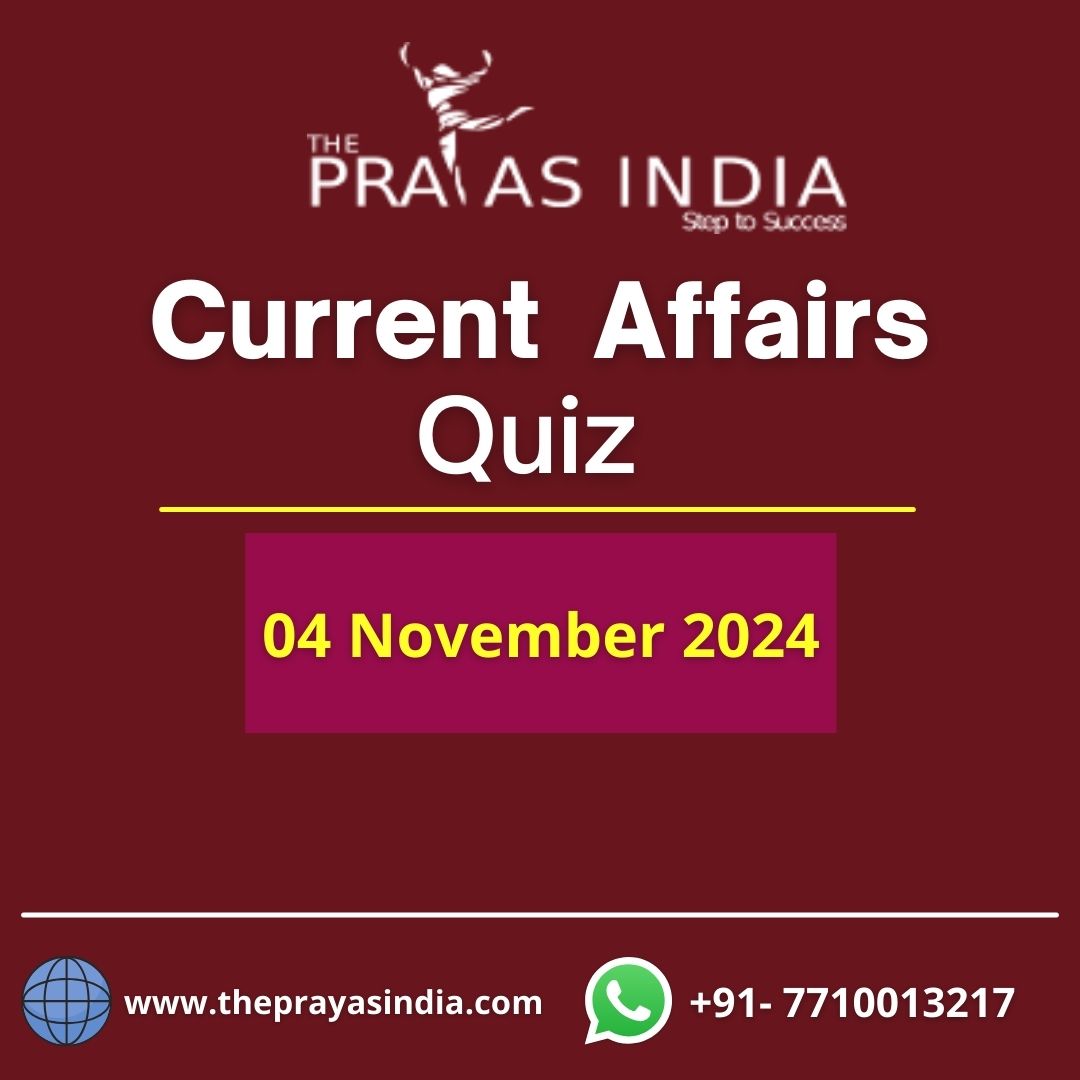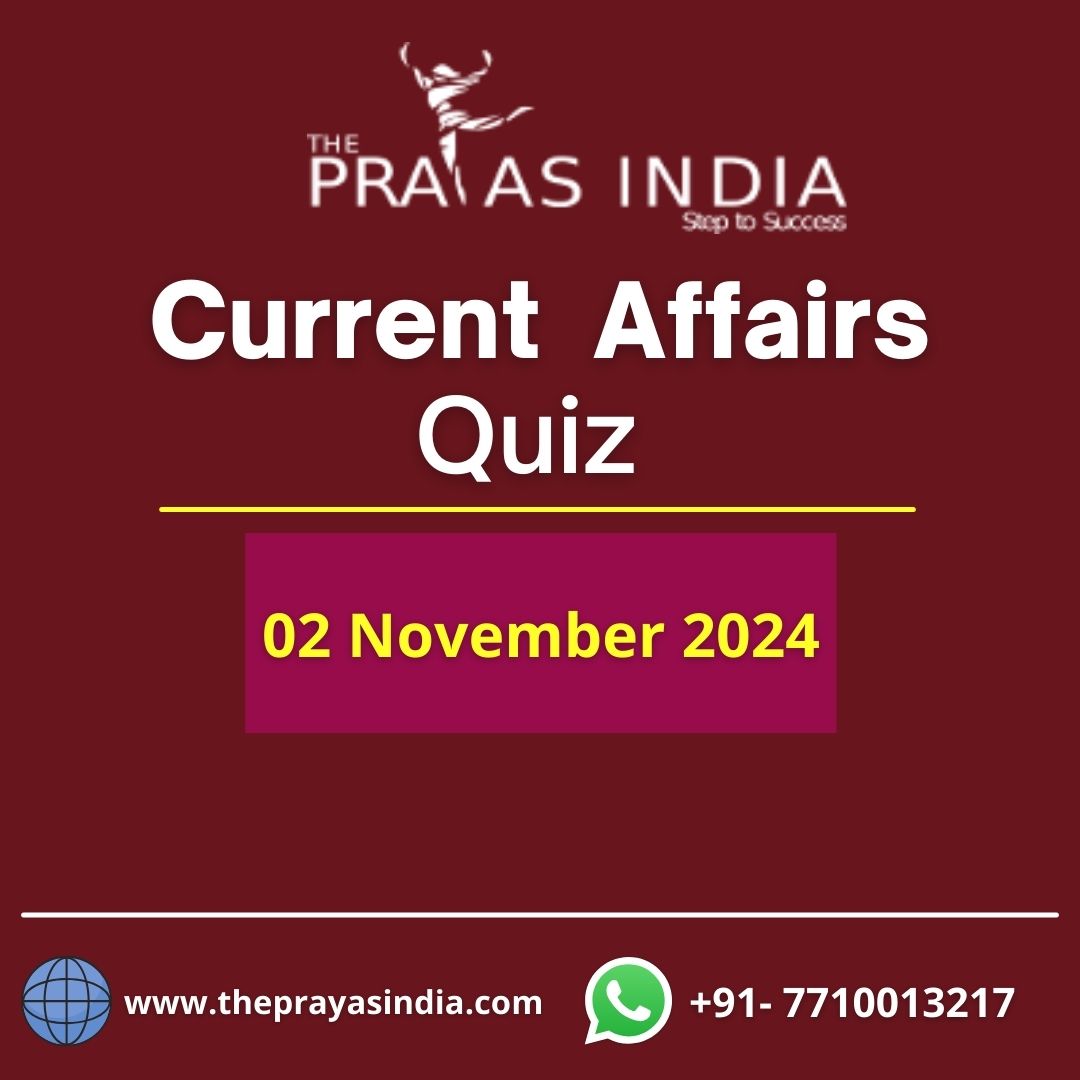Q1. Consider the following statements regarding the Miss Universe contest.
- Miss Universe is an international beauty contest conducted once in three years.
- It is conducted by a United States based organisation.
- Till now India has won the title thrice since its inception.
Which of the above statements is/are correct?
- 1, 2
- 2, 3
- 1, 3
- 1, 2, 3
B – EXPLANATION
- Miss Universe is an annual international beauty pageant that is run by the United States–based Miss Universe Organization. Along with Miss World, Miss International, and Miss Earth, Miss Universe is one of the Big Four international beauty pageants. Miss Universe 2021 was the 70th Miss Universe pageant.
- The current Miss Universe is Harnaaz Sandhu of India. This is India’s first victory in 21 years, and its third in the history of the pageant.
Q2. UN convention on the Rights of persons with disabilities includes which of these rights for the differently abled?
- Rights to personal mobility
- Rights to live independently and be included in the community
- Rights to participate in political and public life
- Rights to recreation and sport
Select the correct answer code:
- 1, 3, 4
- 1, 2
- 1, 2, 4
- 1, 2, 3, 4
D – EXPLANATION
- Rights specific to this convention include the rights to accessibility including the information technology, the rights to live independently and be included in the community (Article 19), to personal mobility (article 20), habilitation and rehabilitation (Article 26), and to participation in political and public life, and cultural life, recreation and sport (Articles 29 and 30).
Q3. Survival International sometimes seen in news advocates the rights of
- Trafficked human beings
- Refugees
- Tribal people
- Leprosy patients
C – EXPLANATION
- Survival International is a human rights organisation formed in 1969 that campaigns for the rights of indigenous and/or tribal peoples and uncontacted peoples.
- The organisation’s campaigns generally focus on tribal peoples’ desires to keep their ancestral lands. Survival International states that it aims to help foster tribal people’s self-determination.
Q4. $1 trillion platinum coin, recently seen in news is related to
- European Union (EU)
- USA
- China
- Russia
B – EXPLANATION
- The bipartisan fight between U.S. Democrats and Republicans over the ceiling on U.S. Government debt has thrown up an interesting idea. Some in the Democratic camp have suggested that a $1 trillion platinum coin may be issued to bypass the debt ceiling if Republicans refuse to raise it.
- The $1 trillion platinum coin is a token coin with a face value of $1 trillion that can be issued by the U.S. Treasury and deposited at the U.S. Federal Reserve, America’s central bank. It will help the U.S. Government to get from the Fed the money that it needs to fund its spending programmes without increasing its overall liabilities.
Q5. Consider the following statements regarding the observations made by Supreme Court with respect to Right to privacy.
- Right to privacy is as sacrosanct as human existence and is inalienable to human dignity and autonomy.
- This is an absolute right.
- Any surveillance done on an individual by the state is an infringement of that person’s right to privacy.
- Any violation of right to privacy by the state in national interest, has to follow procedures established by the law.
Select the correct answer code:
- 1, 2, 3
- 3, 4
- 1, 3, 4
- 1, 2, 3, 4
C – EXPLANATION
- The Court, pointing to its own judgment in K S Puttaswamy, has said that “right to privacy is as sacrosanct as human existence and is inalienable to human dignity and autonomy”.
- While agreeing that it is not an absolute right, the Court has said any restrictions “must necessarily pass constitutional scrutiny”. Any surveillance or snooping done on an individual by the state or any outside agency is an infringement of that person’s right to privacy.
- Hence, any violation of that right by the state, even in national interest, has to follow procedures established by the law.
Q6. Consider the following statements regarding the repealing of a law in India.
- The Constitution empowers the Parliament to enact as well as to repeal any law.
- For repeal, the power of Parliament is the same as enacting a law under the Constitution.
- A law cannot be repealed by promulgating an ordinance.
Which of the above statements is/are correct?
- 1 only
- 1, 2
- 1, 3
- 1, 2, 3
B – EXPLANATION
- What is the procedure to repeal a law in India? The law can be repealed by the government in two ways;
- First to bring a Bill to repeal the three laws, and Second is to promulgate an ordinance that will have to be consequently replaced with a Bill within six months.
- For repeal, the power of Parliament is the same as enacting a law under the Constitution. Article 245 of the Indian Constitution empowers the Parliament to enact as well as to repeal any law. That is, the Parliament has the power to make laws and also to repeal them through the Repealing and Amendment Act. In 1950, the first Act was passed and 72 Acts were repealed.
- Like any other Bill, the Repealing and Amendment Bill will pass in the same way as any other Bill. It will have to be passed by both Houses of Parliament and the President’s assent will be required to make it a law.
Q7. Which of the following are the different kinds of Parliamentary committees
- Financial Committees
- Standing Committee
- Ad-hoc / Select Committees
- Administrative Committees
Select the correct answer code:
- 2, 3
- 1, 2, 3
- 2, 3, 4
- 1, 2, 3, 4
Answer – D
Q8. Consider the following statements regarding Union Finance Commission.
- The Finance commission submits its report to the union Finance minister.
- The recommendations made by the Finance Commission are binding on the government.
Which of the statements given above is/are correct?
- 1 only
- 2 only
- Both 1 and 2
- Neither 1 nor 2
D – EXPLANATION
- Article 280 of the Constitution of India provides for a Finance Commission as a quasi-judicial body. It is constituted by the president of India every fifth year or at such earlier time as he considers necessary. The commission submits its report to the president. He lays it before both the Houses of Parliament along with an explanatory memorandum as to the action taken on its recommendations.
- The recommendations made by the Finance Commission are only of advisory nature and hence, not binding on the government. It is up to the Union government to implement its recommendations on granting money to the states.
Q9. Consider the following statements regarding Parliamentary committees.
- Parliamentary committees act as a mini-parliament as they have MPs representing different parties who are elected through a system of the single transferable vote.
- Parliamentary committees ensure executive accountability through scrutiny of public spending.
- The committee recommendations are binding on the government.
Which of the above statements is/are correct
- 1, 2
- 2 only
- 2, 3
- 1, 2, 3
A – EXPLANATION
- The Parliamentary committees are established to study and deal with various matters that cannot be directly handled by the legislature due to their volume.
- These committees act as a mini-parliament, as they have MPs representing different parties are elected into them through a system of the single transferable vote, in roughly the same proportion as their strength in Parliament.
- They monitor the functioning of the executive branch and provide legislature with various policy input, playing an important role in Indian democracy.
- It scrutinises the accounts and the report of the Comptroller and Auditor-General of India, thereby ensuring accountability of any misspending.
- Parliamentary committees ensure executive accountability through scrutiny of public spending and various laws.
- The Public Accounts Committee is concerned with the manner and results of spending public funds. Although committee recommendations are not binding on the government, their reports create a public record of the consultations that took place and put pressure on the government to reconsider its stand on debatable provisions.
Q10.Consider the following statements.
- In both the Houses of Parliament, elected members enjoy the right to seek information from various ministries and departments in the form of starred questions and unstarred questions.
- The admissibility of questions in Rajya Sabha is governed by Rules of Procedure and Conduct of Business in the Council of States.
- The questions in both the Houses of Parliament cannot be disallowed and is usually passed on to the next session of the Parliament if it cannot be taken up in the ongoing session.
Which of the above statements is/are correct?
- 2 only
- 1, 2
- 2, 3
- 1, 2, 3
B – EXPLANATION
- In both Houses, elected members enjoy the right to seek information from various ministries and departments in the form of starred questions, unstarred questions, short notice questions and questions to private members.
- The admissibility of questions in Rajya Sabha is governed by Rules 47-50 of the Rules of Procedure and Conduct of Business in the Council of States. In Lok Sabha, the questions are examined for admissibility under Rules 41-44 of the Rules of Procedure and Conduct of Business in Lok Sabha.
- In both Houses, the first hour of every sitting is usually devoted to asking and answering of questions, and this is referred to as the ‘Question Hour’.
- The Rajya Sabha Chairman or the Lok Sabha Speaker has the authority to decide whether a question or a part is or is not admissible under the norms of the House, and disallow any question or a part. Once disallowed, it is often difficult for members to challenge the decision.




